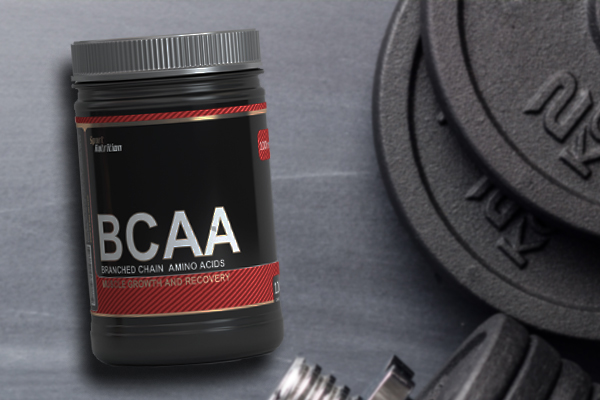Resources
BCAAs (branched-chain amino acids) consist of three essential amino acids. Leucine, isoleucine, and valine. They are called essential amino acids because the body cannot create them, so you must get these amino acids from external sources like meats and/or supplements. An easier definition for BCAAs is protein! This is why your tub of BCAAs has a protein and caloric value. There are nine total essential amino acids, and 11 nonessential amino acids vital for building muscle. Nonessential amino acids are nonessential because they can be made within the body. Meat contains all nine essential amino acids, so it is a powerful muscle building food. It is widely believed that BCAAs stimulate muscle protein synthesis, inducing an anabolic state. Specifically, the BCAA known as Lysine. Therefore, you should take BCAAs directly after working out to further enhance muscle protein synthesis to maximize muscle growth.
Let’s dive deeper into this discussion…
To build new muscle, we must be creating more new proteins then we are breaking down. Interestingly, when BCAAs are taken at rest, muscle protein synthesis and muscle protein breakdown are reduced, diminishing the overall protein turnover. Why does this happen? As mentioned, all amino acids must be present to build new muscle. BCAAs only provide three of the nine essential amino acids. For the body to get the other six, it must break down proteins already existing in the body, such as muscle tissue. Theoretically, it would be impossible for BCAAs alone to be anabolic because protein breakdown would always need to be accelerated to fulfill the essential amino acid requirements. But it’s not often we would take a BCAA supplement on its own and while at rest. They are usually taken before, during, or after exercise. As 5.6g of BCAA is equivalent to 20g of whey protein, when it is taken after exercise we see a 22% greater muscle protein synthesis response to a placebo. Great! BCAAs are worth it then! Not so fast. This response is approximately 50% less than the muscle protein synthesis response to a dose of whey protein with a similar amount of BCAAs. While they may stimulate the anabolic pathway, there isn’t enough material to maximize the response, indicating that essential amino acids availability is the limiting factor. How does this relate to muscle building? It seems when you are consuming an adequate amount of daily protein, additional BCAA supplementation serves no future benefit. There is a kicker: almost all protein sources have BCAAs in them, amongst other essential amino acids and non-essential amino acids. This means if you are using a whey or beef protein powder, you are getting all of the amino acids necessary to build muscle. While whey protein has a higher essential amino acid and BCAA count than beef protein, it doesn’t seem to make a difference in the long term regarding muscle growth.
You may be wondering why every supplement company sells BCAAs, and so few sell essential amino acids if you need all nine essential amino acids for building muscle? It comes down to the amino acid Leucine, which is the primary driver of the muscle proteins synthetic response. It is hypothesized that 23g of Leucine maximizes the muscle building response after exercise. However, Leucine alone isn’t enough to sustain muscle protein synthesis without sufficient essential amino acids. Looking at supplementation overall, we see no additional benefit of BCAAs when adequate daily protein is ingested. While these amino acids may spike muscle protein synthesis, they do not contain enough essential amino acids to build muscle.
Overall you could say branch-chain supplementation does nothing since there are no further benefits when adequate protein is consumed. BCAAs are unlikely to contribute to fat gain. Fat gain is a result of consuming more calories than you burn. 5g of BCAA equals 20 calories and this will not make or break your physique. In fact, eating excess protein does not seem to affect body composition at all, even with an excess of 800 calories per day. You also cannot get addicted to BCAAs, as they don’t have a stimulatory effect or alter your brain chemistry. Creatine is hands-down better than BCAAs for supporting performance in the gym. Creatine is well supported within research and the real world examples. Creatine has been shown to improve strength by 8% and increase the number of reps in a given load by 14%. BCAAs are not a pre-workout option as they do not provide ergogenic aid. However, they are often present in pre-workout formulas. Generally you should avoid pre-workouts that have BCAAs in it if your main goal is to improve strength and endurance when working out. These amino acids do not burn belly fat or any fat at all. BCAAs are a source of protein, and protein has no thermogenic effect. If you are hitting your daily target of protein, which is 0.8-1g per pound of body weight, then you can stop adding BCAA supplements. A whey proteins supplement will cover the majority of your needs and help you hit your daily protein targets.
Our Location
2606 Southwest 19th Ave Rd.
Unit 101
Ocala, FL 34474
Hours
Mon-Sat: 10:00A to 7:00P
Sunday: CLOSED
